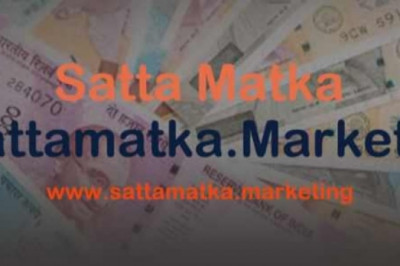views

What is Uniswap? Why was it a revolution?
What is Uniswap?
Uniswap is a decentralized exchange (DEX) based on Ethereum used to Exchange ERC20 tokens.
While most exchanges (Coinbase, Binance, etc.) charge a commission every time an exchange occurs, Uniswap is designed to function as a public good, a tool for the community to exchange tokens without platform fees or intermediaries.
Also unlike most exchanges, which put buyers and sellers in contact to determine prices and execute trades, Uniswap uses a simple mathematical equation and pools of tokens and ETH to do the same job.
Thanks to this, Uniswap is one of the main products of the DeFi ecosystem, the decentralized crypto exchange or DEX. DEXs aim to solve many of the problems of their centralized counterparts, such as the risk of hacking and theft, mismanagement, and fees. However, decentralized exchanges have their own problems, mainly the lack of liquidity, that is, the lack of amount of money that circulates through an exchange that makes operations faster and more efficient.
Uniswap tries to solve the liquidity problem of decentralized exchanges, allowing the exchange to exchange tokens without depending on buyers and sellers to create that liquidity.
Who created Uniswap?
Uniswap was created by Hayden Adams, who was inspired by a post from Ethereum founder Vitalik Buterin.
Uniswap Evolution
Although Uniswap launched in November 2018, it wasn't until relatively recently that the protocol began to see significant traction.
Much of this interest stems from the release of Uniswap V2 in May 2020, a major update that allows direct swaps from ERC20 to ERC20, removing wrapped ether (WETH) from the equation when possible. Uniswap V2 also supports previously incompatible ERC20 tokens such as OmiseGo (OMG) and Tether (USDt), and adds a number of technical enhancements that make their use more desirable.
As liquidity mining and yield farming platforms increased dramatically in popularity in 2020, Uniswap saw a corresponding increase in interest, as many DeFi platforms allow Uniswap's liquidity providers to see an additional return on their LP tokens. (Liquidity Provider).
This, in combination with the 0.3% exchange fees distributed to liquidity providers - and the platform's popularity as a launch pad for popular DeFi project tokens - has seen Uniswap move up the ranks to become one of top DeFi platforms by total value blocked (TVL), a measure of the total value of crypto assets blocked on the platform.
In February 2021, it became the first decentralized exchange to process more than $ 100 billion in trading volume, and it now frequently exceeds $ 1 billion in trading volume each day. This performance has made it not only the largest DEX by trading volume, but one of the top five most popular exchanges.
Meanwhile, Uniswap's governance token (UNI) has risen to become the 13th largest cryptocurrency development services by market capitalization, after reaching a peak value of more than $ 26. This was driven, at least in part, by the growing popularity of yield farmin pools, many of which require users to hold UNI or Uniswap LP tokens.
Although the first pair sold for just $ 12, in February 2021, a unique selling format that uses a union curve to set the price saw a pair sell for a whopping $ 92,000.
But not everything has been a bed of roses for Uniswap. As a result of massive congestion on the Ethereum network, transaction fees have skyrocketed, making trading on Uniswap a costly undertaking, especially when it comes to low-value trades.
This has led to the proliferation and growth of a wide variety of alternative platforms, such as TRON's JustSwap, Qtum's QiSwap, and Kyber Network, which promise faster transitions, lower fees, or both. Uniswap has also recently seen its daily transaction volume briefly outpaced by PancakeSwap, a similar Automated Market Maker (AMM) built on top of Binance Smart Chain.
But Uniswap is preparing Uniswap V3 to improve flexibility and reduce commissions, among other features.
The Ethereum 2.0 network is also expected to speed up transactions and lower commissions.












